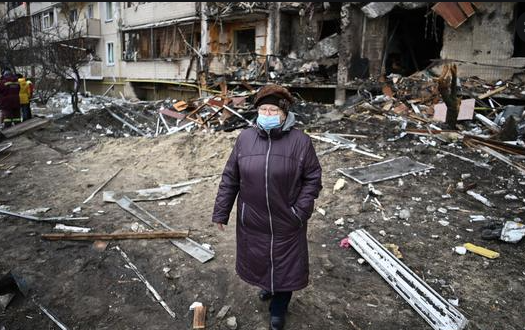The unprovoked attack by the Russian government on Ukraine is a threat to the international community. Beyond theoretical-methodological differences in the study of international relations or political-ideological preferences, there is no doubt that it is an unjustified use of military force. It is an aggressive attempt to reconfigure an area of hegemonic influence and the imposition of a global “new Treaty of Tordesillas” that benefits a few. It is a renewal of the old “big stick” policy, a manifestation of illegitimate imperialism that has certainly not been the exclusive practice of the Russian state, but with which there can be no compromise.
From the perspective of international law, the attack on Ukraine violates almost all the principles, values, and foundations on which relations between sovereign states are based. This includes an attempt to relativize the essential criteria of international relations, such as non-intervention in the internal affairs of other States, respect for sovereignty, independence and territorial integrity, the peaceful settlement of disputes, refraining from the use of force, self-determination of peoples, credibility of treaties, and legal equality.
For Latin American countries, long subjected to U.S. and European imperialist abuses, upholding and vindicating such criteria is absolutely crucial, invaluable, and unquestionable. This is a clear and direct challenge to the effort to build an international order of free peoples. To recognize and support the people of Ukraine in their struggle to defend themselves against external aggression and at a decisive moment in their history would be, from a Latin American perspective, the right, just, and necessary thing to do.
On the side of studies on international security and contemporary strategic issues, it is evident that in Moscow’s strategic calculation there are considerations that go beyond its bilateral relations with its neighbor. Other state and non-state factors are involved in this conflict, such as the pro-Russian separatists in eastern Ukraine, the enlargement of the North Atlantic Treaty Organization (NATO), Eurasian relations with China, and even ethno-political and civilizational issues. None of this, however, would authorize, in the 21st century, the implementation of an imperialist, expansionist, and militaristic aggression such as the one observed here.
Disdaining this attack against the Ukrainian people and government will encourage equally aggressive behavior on the part of other great regional or world powers. Therefore, taking into consideration the Latin American experience, which has no lack of abusive imperialist interventions of a similar nature, as well as the corresponding anti-imperialist reactions, it is understood that a progressive and republican stance should be implemented against the geopolitical ambitions of the government of President Vladimir Putin, the Russian oligarchs, and their collaborators such as the Government of Belarus.
Moreover, while the Ukrainian government was democratically elected, the same cannot be said of Russia, which is seen as a case of competitive authoritarianism. Herein lies the risk of democratic erosion and autocratization arising directly from the issue at hand.
Latin America has a long tradition of anti-imperialist, counter-hegemonic struggle and South-South cooperation. Therefore, denouncing the aggression against Ukraine does not mean, in any way, being subordinate or complacent with Western powers such as the United States that have also had equally abusive pretensions. Basically, it is a matter of being consistent while maintaining a principled anti-imperialist policy and following the path opened by the liberators of the 19th century.
After a week of military operations against Ukraine that have been condemned by almost all actors in the international community, especially in the UN, the most constructive way out would be direct and good faith negotiations between the parties. The Moscow government should take note that its aggression will not be passively recognized and accepted, even within Russia itself. A negotiation without preconditions, with an open agenda and on an equal footing would help resolve its divergences with the Kiev government and reduce the growing global tensions.
An eventual Russian political-military victory in Ukraine would imply, among many other things, a return to the era of the politics of barbarism, gunboat diplomacy, and “banana wars”. It would be a mistake and a tragedy for the international security of smaller and medium-sized countries.
Likewise, other regional powers emboldened by the precedent set by the Russian attack on Ukraine could feel legitimized to invade other countries for disagreeing with their preferences, priorities, and behaviors. Therefore, the threat of the use of force in international politics and security cannot be tolerated passively, naively, or candidly, whether in Eastern Europe, Latin America or any other region of the planet.
The aggression against Ukraine deserves a deep and detailed reflection, mainly from the Latin American progressive forces. The people of that country need and demand our support, solidarity, and fraternity. As some philosophers affirmed: “Where there is an aggressor and a victim, neutrality always benefits the aggressor”.
The governments of the planet, the emerging transnational civil society, and the academic world must raise their voices. At this point, this is the only way to advance in the establishment of a world order of free peoples.
Translated from Spanish by Alek Langford











